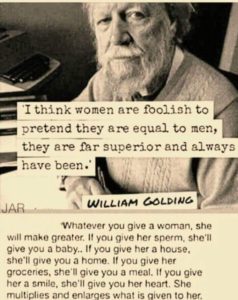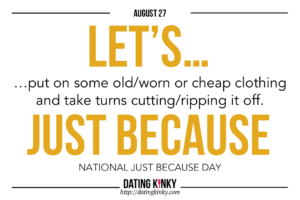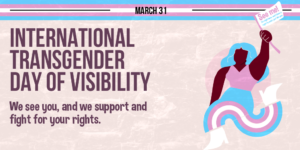And vice versa.
Not long ago, I wrote about the damage I have done some people not seeing them as they wished to be seen.
This is my rebuttal to myself, since I often come down on both sides of an issue.
On a previous writing, @UnicornHusbandry said:
It should be a lot more simple than it is. The issue seems almost childish. But it’s such a common problem in relationships, isn’t it?
What we give to another person, in time, affection or gifts, all indicates who we believe them to be. Do we see them as our property? Do we see them as our student or child who must be instructed? Do we see them as our parent who must offer us unlimited support and affection?
And when you see the 99 misfires, and then like the metaphorical monkeys typing Shakespeare, they finally get one right… It doesn’t really do much for us does it? I mean, even a broken clock is right twice a day.
It is about really digging in to who the other person is in your relationship… How can you give them what they’re actually asking for, not what you think they ought to have…
Yes. Exactly this.
And when I’m determining how to treat you, whether to believe you when you tell me a tale, or what gift to get you, who you ARE doesn’t matter to me.
At all.
Unless you can communicate who you are in a way that I can understand it and agree with it.
Or, more to the point, who you are doesn’t affect my decisions or actions unless I understand who you are.
And this is true for all of you.
And it’s true of me to all of you.
Let me give an examples. On that same writing, I got this response as well:
I was really upset to love this post. It reminds me of “They Just Aren’t That Into You”. My confusion has always been that I love being with me, why don’t others!?
— @MasterHuntsman
When he posted this, I told him I could relate.
I mean, we often say things like this in jest, and yet, it’s 100% true. We ALL have good qualities, and when we focus on ourselves, we KNOW what those good qualities are, and it’s easy to wonder why others don’t see those and respond to them.
I can tell you why:
Because you are not communicating those qualities in a way those others can understand AND agree on them.
Take for example, you.
You’re reading my writing here.
You’re forming judgments about me as you read. Maybe this is the first writing of mine you’ve read, and you’re thinking I’m not very nice.
You’re right.
Maybe this is the 976th writing of mine you’ve read (you’ve missed a few, BTW), and you’re thinking how immensely kind I am and how it shows through in my work.
You’re right.
Because it’s not really about who I am at all.
It’s about whether I can communicate part or all of myself to you in a way you can understand.
And to be clear, I don’t believe that is 100% under your control or mine.
After all, we have different life experiences, will tie different meanings to words we use, and want different things from our interactions.
All good.
And if I find that you don’t understand me or see me the way I prefer to be seen, well, I’ll just not keep company with you anymore.
And I’d guess it’s probably the same for you.
And that’s OK.
Because while you might be the greatest thing since sliced bread, if I can’t see that, I will not treat you accordingly, which cheats us BOTH out of a better experience.










One Response
I love this so much and it’s all true